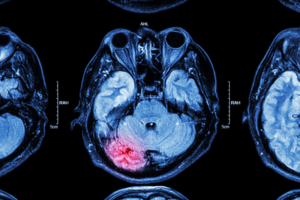 Concussions have been getting a lot of attention recently, and for good reason. Repeated concussions, even minor ones, can cause long-term effects. Researchers at St. Michael’s Hospital conducted a review of 10 studies that indicated that diffusion tensor imaging, an MRI-based neuroimaging method that allows for visualization of white matter tracts within the brain, may be an effective tool for distinguishing patients who recover from those with persistent post-concussion syndrome (PCS) following a mild traumatic brain injury, such as a concussion.
Concussions have been getting a lot of attention recently, and for good reason. Repeated concussions, even minor ones, can cause long-term effects. Researchers at St. Michael’s Hospital conducted a review of 10 studies that indicated that diffusion tensor imaging, an MRI-based neuroimaging method that allows for visualization of white matter tracts within the brain, may be an effective tool for distinguishing patients who recover from those with persistent post-concussion syndrome (PCS) following a mild traumatic brain injury, such as a concussion.
The research study, published in Frontiers in Neurology, concluded that:
Abnormal DTI readings were linked to an increase in number and severity of PCS symptoms.
Finding even minor damage to the corpus callosum, an area of the brain responsible for relaying messages to co-ordinate motor, sensory and cognitive information, may be associated with lasting behavioural, emotional and cognitive impairments in patients with mild brain injury.
DTI testing can detect damage not picked up by more common imaging methods like CT scans.
For more information, visit www.stmichaelshospital.com.






